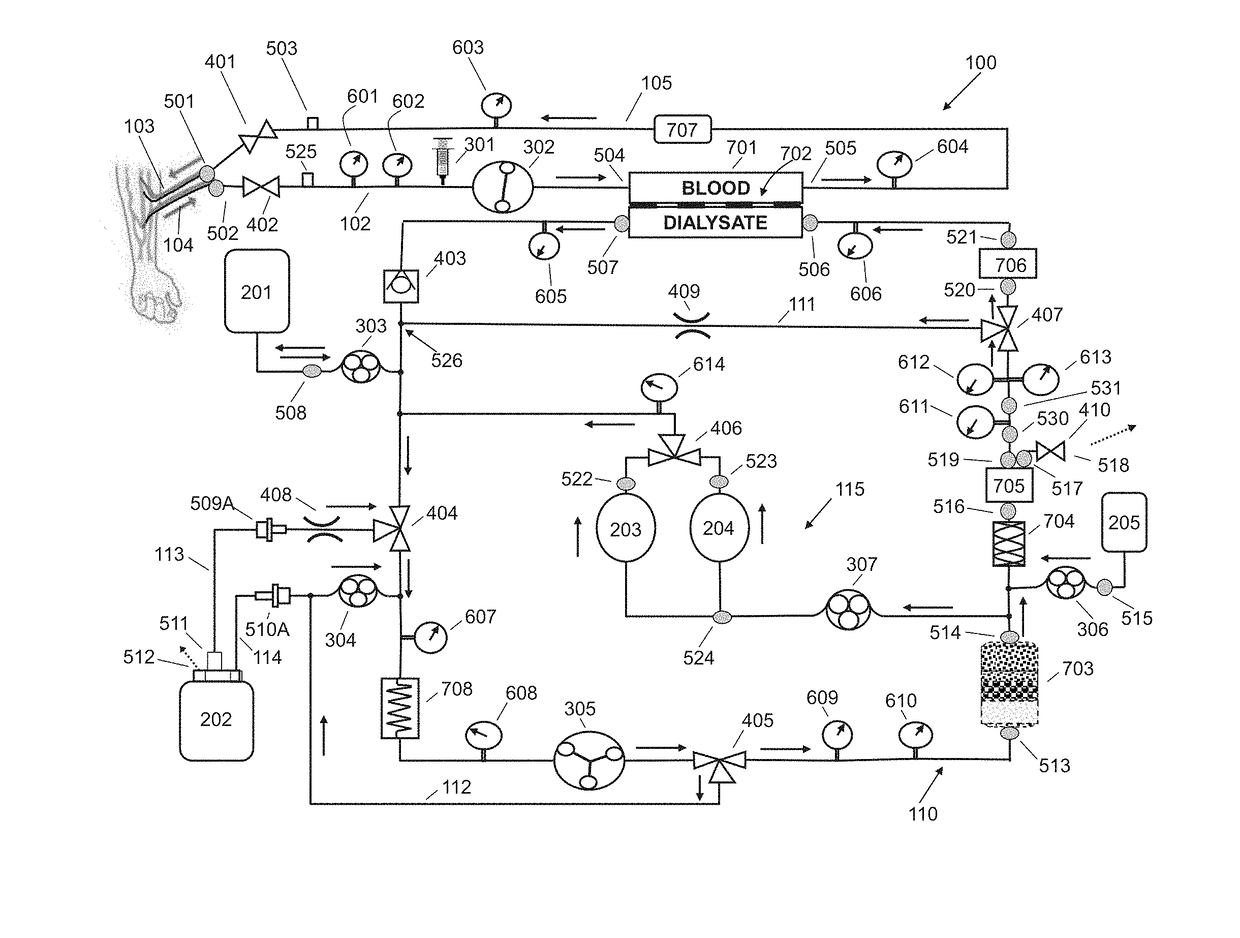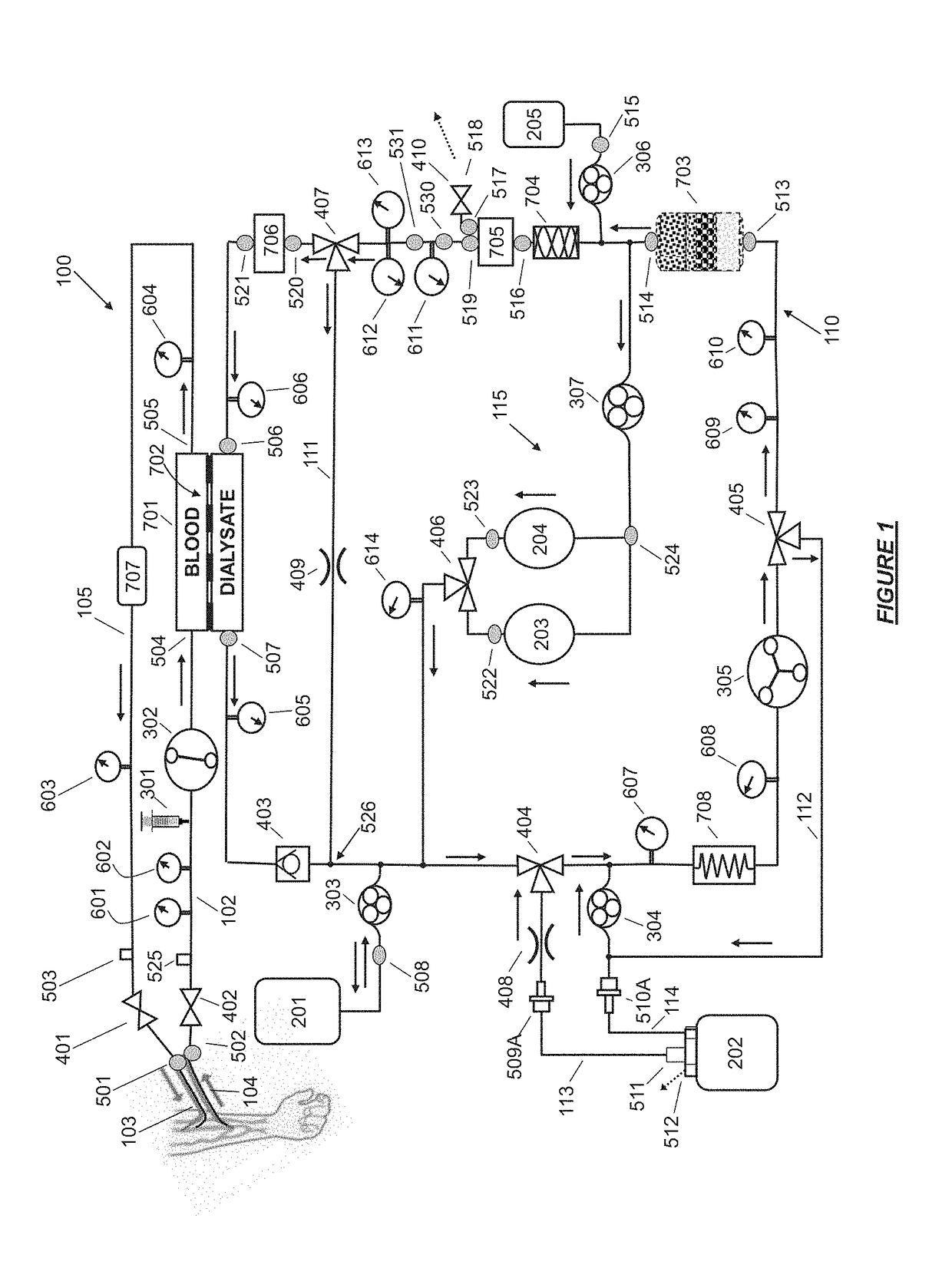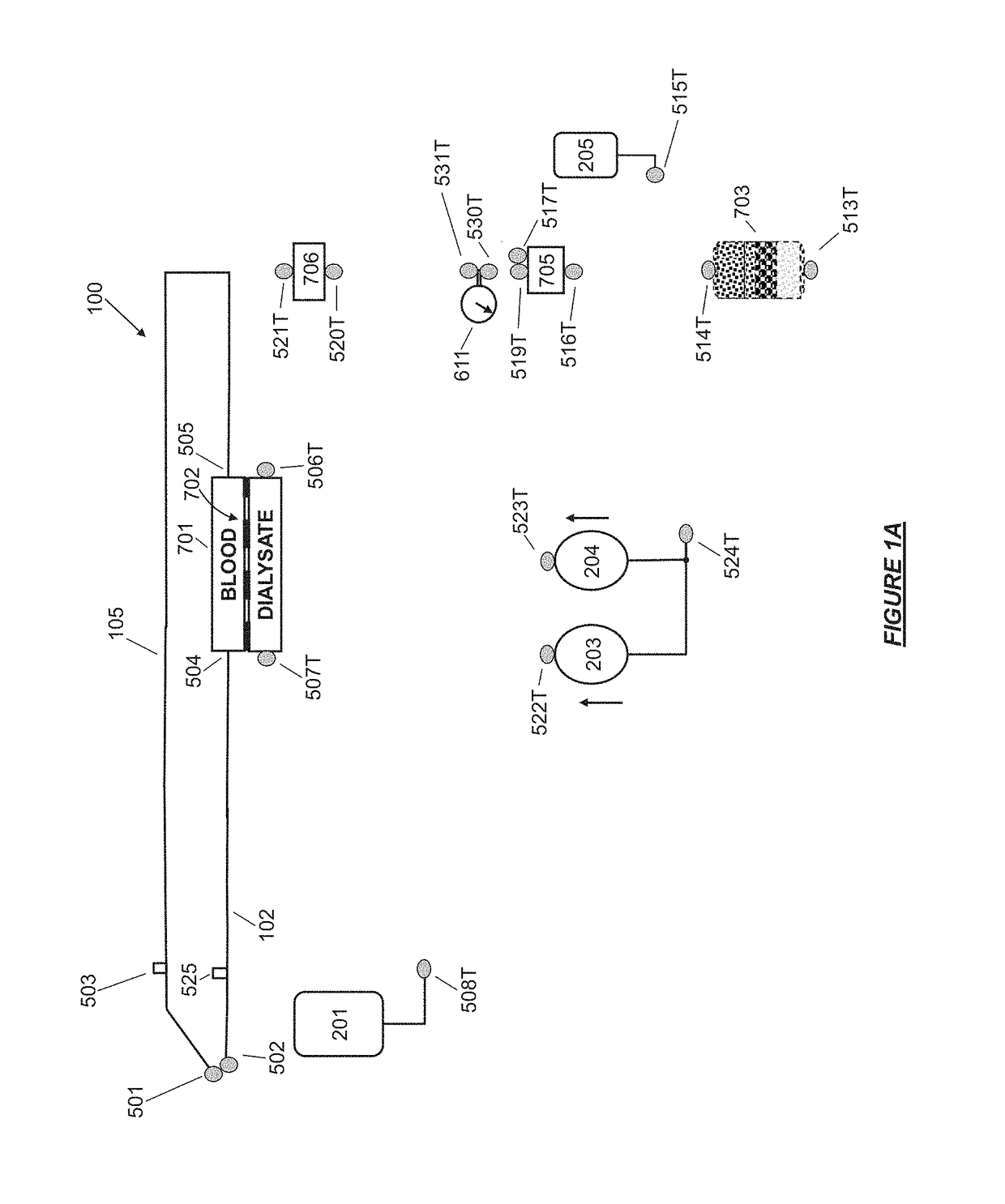Fluid circuit for delivery of renal replacement therapies
a technology of renal replacement therapy and fluid circuit, which is applied in the field of apparatus for hemodialysis and hemofiltration, can solve the problems of dialysis treatment, no cure, and inability to emulate the continuous function of a natural kidney
- Summary
- Abstract
- Description
- Claims
- Application Information
AI Technical Summary
Benefits of technology
Problems solved by technology
Method used
Image
Examples
Embodiment Construction
Definitions
[0114]Unless defined otherwise, all technical and scientific terms used herein generally have the same meaning as commonly understood by one of ordinary skill in the relevant art. The definitions provided herein should not be rigidly construed without taking into account the context and other ascribed meanings provided, or by their use, in other parts of the specification, claims, and drawings.
[0115]The articles “a” and “an” are used herein to refer to one or to more than one (i.e., to at least one) of the grammatical object of the article. By way of example, “an element” means one element or more than one element.
[0116]An “acid” can be either an Arrhenius acid, a Brønsted-Lowry acid, or a Lewis acid. The Arrhenius acids are substances or fluids which increase the concentration of hydronium ions (H3O+) in solution. The Brønsted-Lowry acid is a substance which can act as a proton donor. Lewis acids are electron-pair acceptors
[0117]The term “cation infusate pump” historical...
PUM
 Login to view more
Login to view more Abstract
Description
Claims
Application Information
 Login to view more
Login to view more - R&D Engineer
- R&D Manager
- IP Professional
- Industry Leading Data Capabilities
- Powerful AI technology
- Patent DNA Extraction
Browse by: Latest US Patents, China's latest patents, Technical Efficacy Thesaurus, Application Domain, Technology Topic.
© 2024 PatSnap. All rights reserved.Legal|Privacy policy|Modern Slavery Act Transparency Statement|Sitemap



